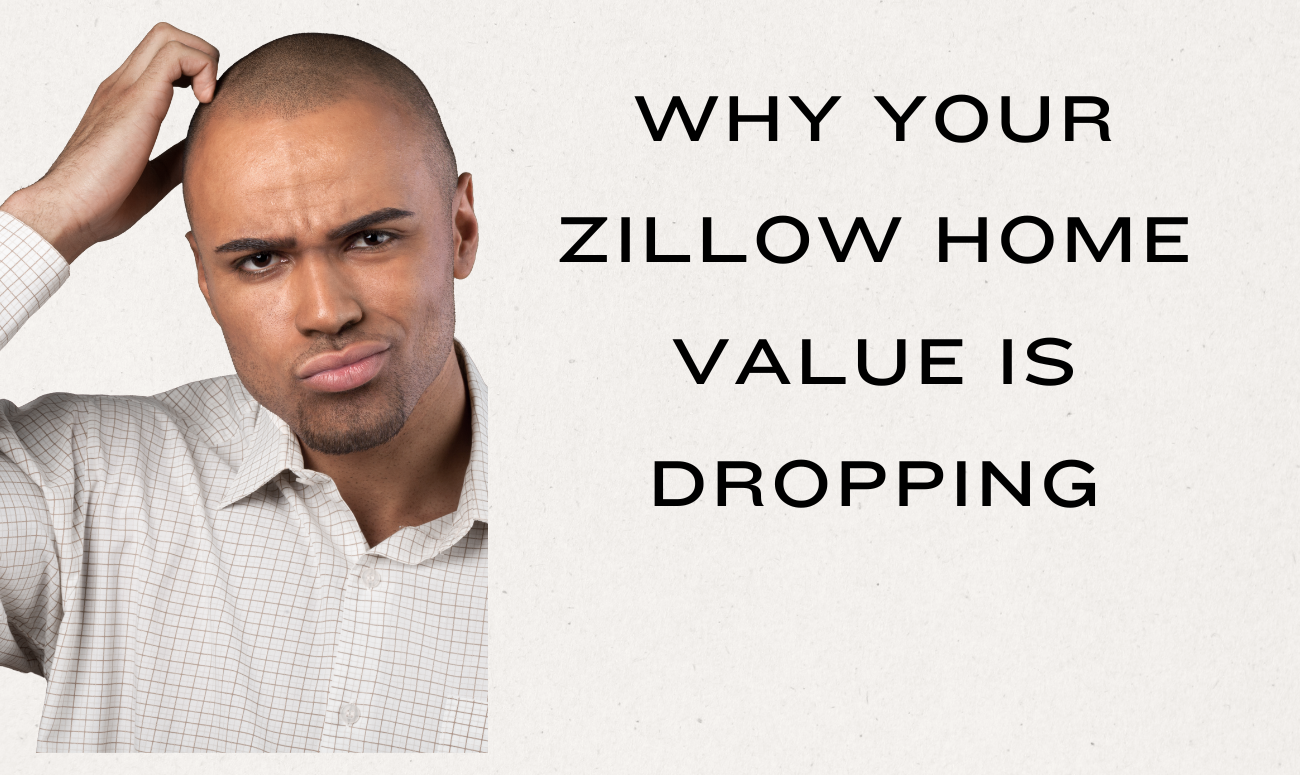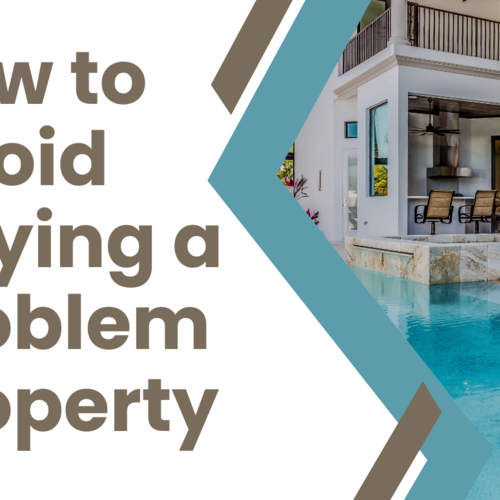Why Your Zillow Home Value Is Dropping: Riding the Real Estate Roller Coaster
The housing market can feel like an unpredictable ride, with home values rising and falling like a roller coaster. If you’ve noticed your Zillow home value estimate decreasing recently, you may be worried about what it means for your home’s worth.
Why Your Zillow Home Value Is Dropping: What Drives This Unpredictability?
The real estate market is impacted by many complex factors. Interest rates, affordability, economic conditions and more all contribute to shifts in home prices and demand from buyers and sellers. When any of these dynamics change suddenly, it can lead to big swings in valuations.
Just like weather forecasts, home value estimates aren’t always accurate either. Tools like Zillow’s Zestimates provide general guidance on worth, but can’t account for all the unique details that impact an individual property.
So if your home’s estimated value dropped on Zillow, don’t panic. It doesn’t necessarily mean disaster for your home’s actual market value. Keep reading to understand common reasons for fluctuating Zestimates and what to do next.
Why Your Zillow Home Value Is Dropping: Why Zillow Home Values Change
Zillow bases its home value estimates on a mix of public data and proprietary algorithms. This analysis aims to determine what comparable homes have recently sold for in your area.
But with real estate, no two homes are exactly the same. Small differences in size, upgrades, location and more can significantly sway value.
That means even a minor change in Zillow’s data or formulas can cause estimated values to rise and fall. Here are key reasons you may see shifts:
Algorithm Updates
Like any software platform, Zillow frequently tweaks its valuation algorithms. As they work to improve accuracy, an update may change the estimated values for some or many homes.
Your home’s characteristics likely didn’t change overnight. But adjustments in how Zillow crunches the data can certainly impact numbers.
Why Your Zillow Home Value Is Dropping: Missing or Outdated Details
Zillow combines public data from sources like tax assessments with user-submitted details on each home. If information on your property is missing or outdated, it restricts the accuracy of your estimate.
For example, if you renovated your kitchen but Zillow lacks those details, it can’t factor that value boost into its estimate. Confirm information listed on your Zillow profile reflects all of your home’s current features.
Why Your Zillow Home Value Is Dropping: Recent Nearby Sales Activity
Estimates heavily rely on the sales prices of comparable neighborhood homes. If a flurry of activity occurs, with homes selling above or below recent norms in your area, it directly impacts surrounding Zestimates.
Monitor listings and sales in your suburb to spot unusual trends that could be skewing your Zillow value.
Why Your Zillow Home Value Is Dropping: Listing Status Changes
Zillow claims a home’s list price doesn’t directly shift its estimated value. But many real estate agents dispute this. They report seeing estimates change after a home is listed or delisted.
So if you just put your home on or off the market, keep an eye on how listing activity influences your Zillow number.
Market Shifts
Housing markets are greatly impacted by economic forces like mortgage rates, inflation, supply dynamics and employment levels. When conditions change and buyer demand rises or falls, values typically follow.
If your local market sees values declining generally, your Zestimate will likely drop too, even if your home’s features are unchanged. Track market reports to contextualize estimate moves.
Why Your Zillow Home Value Is Dropping: How Accurate Are Zestimates Really?
While Zillow deserves credit for trying to simplify home valuations, the truth is their numbers are usually just rough estimates. Here are statistics to put their accuracy in perspective:
– Zestimates have a reported median error rate between 2-8% nationally. That means half of homes have even larger gaps from actual value.
– Your likelihood of getting an accurate valuation depends hugely on your location too. Estimates in some markets are far more reliable than others.
– Industry analysis finds Zestimates can be off in either direction from a home’s true market value by 20-30% or more.
The takeaway? Take Zestimates with a major grain of salt. Their algorithms lack the nuance and insight only local real estate professionals can provide.
And never make major financial decisions based solely on Zillow’s fluctuating automated valuations.
Why Your Zillow Home Value Is Dropping: Why Overvaluations Are Particularly Risky
While Zestimates can over or underestimate, overvaluations tend to be more problematic. If your home is listed significantly above actual market value, it may:
Deter qualified buyers from touring it or making offers. They filter out homes perceived as overpriced.
Incentivize lowball offers well under your expectation. Savvy buyers spot pricing discrepancies.
Delay your home selling, if you refuse to drop your list price to align with true value.
Lead to accepting an offer, only to have the buyer’s appraisal later come in lower, threatening the deal. This issue has become more common with fast-changing pandemic markets.
Why Your Zillow Home Value Is Dropping: But What If Other Sites Show Drops Too?
If your Zillow estimate dropped, but valuations on sites like Redfin and Realtor.com also fell, it’s wise to dig deeper. Aligning home value reductions across platforms suggest your local market might genuinely be experiencing a downturn.
Pull pricing insights from recent neighborhood sales, not just estimates. And consider connecting with a professional local real estate agent for their take.
Get an Accurate Picture of Your Value
Rather than obsess over Zillow’s ups and downs, take control of assessing your true home value. Here are smart next steps:
Compare Your Home to Actual Nearby Sales
Study homes similar to yours that sold recently. How do their sales prices align with your Zestimate? Are the differences minor or major? Understanding real market activity gives you the best read.
Why Your Zillow Home Value Is Dropping: Claim Your Zillow Profile
Make updates so details like square footage, beds, baths and upgrades reflect your property accurately. Photos and description language influence perceptions too. Accurate data improves estimate reliability.
Get a Comparative Market Analysis
Ask a local real estate professional to evaluate your home value based on current area sales activity. Experienced agents combine data analysis with market expertise for clarity automated tools lack.
Consider a Professional Appraisal
For the most rigorous home valuation prior to listing or when negotiating a major financial transaction, an appraiser’s assessment is hard to beat. Fees range $400-$500 on average.
How Much Do Estimates Really Matter?
Zestimates and other home value estimates certainly have limitations. But remember, they aren’t used to definitively determine what a buyer will pay or bank will lend for your property.
Your home’s actual sale price or appraised value relies on how the unique property and ever-changing market dynamics come together when the deal occurs.
So opt for pragmatism over panic if your Zillow number drops. Take smart steps to understand true worth, not just estimates. And trust both buyers and professional appraisers will make valuations based on real conditions when it matters most.
Accept This Uncertainty
The housing market, economy and world often feel intensely unpredictable these days. But obsessing over estimate fluctuations you can’t control brings more stress than insight.
Remember even professional forecasts shift. Focus less on chasing phantom valuations and more on boosting true buyer appeal. Ultimately savvy sellers sell, regardless of the estimates game.
Diving Deeper into Zestimates
To provide more context around Zillow valuations, let’s explore some additional details on how their process works:
The Zestimate Formula
While Zillow doesn’t share its exact algorithm formula, they provide an overview of major components included:
– Prior sale prices of the home itself
– Tax assessments records
– Comparable recent sales of nearby homes
– Characteristics like square footage, beds, baths
– Home facts like lot size, age, style
They apply advanced statistical modeling and machine learning to analyze this data and detect patterns they use to generate valuations.
But It’s Not an Appraisal
It’s important to understand Zestimates are automated estimates, not appraisals. Key differences include:
– Zestimates rely solely on historical data, not future market projections. Appraisals consider both.
– Appraisers physically visit each property. Zestimates use aerial views and user-submitted photos.
– Appraisers have local real estate experience. Zestimates use national property data models.
– Lenders require appraisals to confirm values when underwriting loans. Zestimates are informational only.
So while Zestimates offerballpark figures, consider their limitations before making major financial decisions based on the numbers.
How You Can Enhance Your Zestimate
Just because Zestimates have flaws doesn’t mean you can’t take steps to improve their accuracy:
Claim Your Home: Creating a free Zillow profile for your home allows you to update facts to keep info current. You can also add photos, 3D tours and other details to present your property in the best possible light.
Monitor Neighborhood Activity: Pay attention to real-time home sales and listings near you. Estimate algorithms dynamically incorporate surrounding sales data, so activity influences your valuation, especially if extreme high or low.
Appealing to Buyers Beyond the Estimate
While monitoring your Zestimate offers helpful clues to market shifts, smart sellers focus more effort on showcasing their home’s value beyond the numbers. Here are impactful tips:
Highlight Unique Features
Don’t just rely on basic beds, baths, square footage stats. Draw attention to special attributes like chef’s kitchens, luxury bathrooms, media rooms, pools and outdoor living spaces that set your residence apart.
Refresh Curb Appeal
Little upgrades like new welcome mats, potted plants, exterior lighting and freshly painted doors make huge impressions on buyers just driving by. Up to 70% judge from the curb, so have it make your home irresistible.
Prep Inside for Wow Factor
Deep clean everything, toss clutter, make repairs, enhance styling and depersonalize to showcase the home, not your stuff. Sellers fret over Zestimates but neglect more impactful (yet easier) ways to boost buyer desire.
Think Lifestyle, Not Just Property
Situate your home in buyers’ imaginings of the life it offers – entertaining, families, leisure etc. Help them picture themselves living and making memories there through strategic photos, tours and messaging.
Consider Enriching the Numbers
If your Zestimate seems stuck despite a hot sellers’ market, strategic updates like bathroom remodels, new HVACs and landscaping can quickly recoup investment through higher offers. But consult a local real estate pro on best return fixes first.
Inspect Why Your Home Didn’t Sell
If you previously listed your property but had no takers, dig into possible deterrents beyond price point. Inspection reports from agent showings and open houses provide candid feedback to rival any estimate. Heed warnings and adjust accordingly.
Pandemic Impact on the Market
The Covid-19 pandemic dramatically impacted dynamics across real estate:
Work from Home Shifts
With remote work replacing long office commutes for many, homeowners increasingly prioritized living space over proximity to cities. Many relocated to more affordable suburbs or completely new regions with bigger homes, backyards and access to nature.
Soaring Materials Costs
As shutdowns and supply chain turmoil made construction materials much pricier, buyers competed fiercely for limited existing inventory. Bidding wars erupted in many regions, far surpassing listing estimates.
Mortgage Rate Rollercoaster
Rock bottom rates early in the pandemic fueled application and purchasing frenzies. But as inflation ignited, the Federal Reserve raised interest rates aggressives. Higher loan costs cooled demand, slowing the blistering pace.
Lingering Economic Anxiety
Despite red hot conditions, recession fears loom in 2023 for many market watchers. Layoffs in mortgage lending and real estate sectors signal corrections ahead. Savvy sellers look for options beyond only Zestimates.
Why Your Zillow Home Value Is Dropping: The Path Ahead
While estimates provide limited visibility into your home’s potential worth, the future remains filled with uncertainties. Consider focusing energy less on chasing the numbers and more on showcasing tangible property strengths.
Emphasize aspects that matter most to buyers – move-in readiness, lifestyle perks, smart renovations. And tap knowledgeable local real estate professionals as navigators for the road ahead, whatever direction markets turn next.
If you are looking for a St Petersburg Realtor visit https://avalongrouptampabay.com/
We service Real Estate Sales in the following Tampa Bay Areas: St. Petersburg, Clearwater, Largo, Pinellas Park, Dunedin, Palm Harbor, Tarpon Springs, Oldsmar, Safety Harbor, Seminole, South Pasadena, Kenneth City, Belleair, Belleair Beach, Belleair Bluffs, Belleair Shore, Indian Rocks Beach, Indian Shores, Madeira Beach, North Redington Beach, Redington Beach, Redington Shores, St. Pete Beach, Treasure Island, Tampa, Westchase, Trinity, Lutz, Wesley Chapel and Brandon.




